Scales
The ITEA measures five important aspects of individuation in relation to mother (ITEA–M form) and father (ITEA–F form).
Support Seeking
An individual’s seeking of parental emotional support, approval, advice, and help in difficult or important situations.
Connectedness
An individual’s experiences of mutual understanding, respect and trust in the relationship, and perceptions of the parent as a good companion, available for open and sincere communication.
Intrusiveness (of a parent)
An individual’s perceptions of the parent as intruding into their privacy, parental excessive concern, worry about them, and desire to exert emotional control over them.
Self-Reliance
An individual’s belief that they manage personal affairs, problems, and important decisions without parental assistance.
Fear of Disappointing the Parent
An intrapersonal form of dependence on the parent, such as feelings of worry, anxiety, guilt, and resentment when an individual does not meet parental expectations.
Psychometric properties
The original and longer version of the ITEA includes 36 items. The results of the ITEA-36 validation study in a Slovenian sample (Komidar et al., 2014) provided evidence for satisfactory construct validity (e.g., comparative fit index [CFI] and Tucker–Lewis Index [TLI] above .90), and for the stability of the five-factor structure across emerging adults’ gender. The five scales had good internal consistency (Cronbach’s α coefficients ranged from .84 to .92 for the ITEA–M form, and from .80 to .90 for the ITEA–F form). Evidence was also reported for the measure’s concurrent validity by evaluating associations of the ITEA scales with the (somewhat adjusted) Emotional, Conflictual, and Functional Independence scales of the Psychological Separation Inventory (PSI; Hoffman, 1984). The criterion validity of the ITEA scale scores was further supported by their associations with the achieved criteria for adulthood (the adjusted List of criteria for adulthood by Arnett, 2003), satisfaction with life (SWLS; Diener et al., 1985), meaningful links with age, gender and transitional markers of adulthood (Zupančič et al., 2014), and differential relationships with the Big Five personality traits (Zupančič & Kavčič, 2014). Furthermore, relatively high one- and two-year stability across the scale scores (rs from .63 to .85) was found in two independent Slovenian samples (Poredoš, 2020; Zupančič & Kavčič, 2016). The ITEA adapted to German and Portuguese language and cultural environments was also tested in samples of Austrian (Zupančič & Sirsch, 2013) and Portuguese emerging adults (Nunes et al., 2019), resulting in structural validity and good internal reliability of the five scale scores.
Person-centred analyses (two-step cluster analyses) identified four internally replicable and structurally consistent (in relation to mother and father) ITEA types – dependent, anxious, individuated-related and individuated-independent types. Significant associations of type membership were shown for emerging adults’ age, gender, intimate relationship and employment status. However, the cross-parent type membership suggested that the ITEA should be employed in relation to each parent separately as about a half of young people currently navigated the process of individuation differently in relation to mother than father (Kavčič & Zupančič, 2019).
To achieve a more robust internal structure of the ITEA for cross-cultural comparisons and to decrease its length, we created a short version of the test (ITEA–S). We cross-validated the structure of the ITEA–S (21 items) in independent Slovenian and U.S. samples (Komidar et al., 2016). The results supported adequate construct validity in both samples, satisfactory internal reliability coefficients, and meaningful correlations with the relevant demographic variables, the three scale scores of the (slightly adjusted) Psychological Separation Inventory (PSI, Hoffman, 1984; the Slovene sample), and the Differentiation of Self Inventory-Revised (DSI–R, Scowron & Schmitt, 2003; the U.S. sample). The results of multiple group confirmatory factor analyses showed full metric and partial scalar invariance for both ITEA–S forms (in relation to mother and father) across the samples in the two countries. Likewise, the multiple-group factor analysis supported the hypothesis of full metric and scalar invariance for both ITEA-S forms across the Austrian and German samples of emerging adults, satisfactory internal reliability of the scales, and their meaningful relations with the three PSI scales and SWLS in both samples (Komidar et al., 2021). The original five-factor model of the ITEA-S was also supported in the study with Turkish emerging adults which also suggests its use in non-western countries (Karataş et al., 2019).
Our more recent studies employing the ITEA–S in Slovenia further indicated satisfactory construct validity and reliability of maternal ratings of the five scales of their child’s individuation, a moderate agreement in child-mother ratings, and a mediating role of aspects of individuation in the relationship of emerging adults’ age, gender and personality traits with their subjective well-being (Poredoš, 2020). In addition, person-centred analyses suggested the robustness of the four types of individuation (previously identified with the full ITEA) across parents in Austria and Slovenia, and associations of type membership with emerging adults’ emotional as well as psychological well-being (Zupančič et al., 2022).
We suggest the employment of the ITEA–S in large-scale and longitudinal studies with multiple instruments because the short version is less time consuming than the full ITEA and shows good psychometric properties across different countries/language communities (i.e. thus far Austria, Germany, Portugal, Turkey, and the U.S.).

